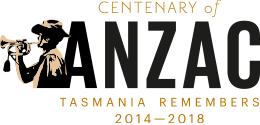Winners of the peacetime regatta

Henley, England. July 1919. Group portrait of members of the AIF first eight rowing crew, competitors in the King's Cup at the Royal Henley Regatta, framed by a pair of oars, near their training quarters on the River Thames. Back row, left to right: Gunner J. A. Begg (No. 3), 13th Battery, Australian Field Artillery; Captain H. C. Disher (Stroke), Australian Army Medical Corps; Lieutenant (Lt) F. A. House (No. 4), 9th Battery, Australian Field Artillery; Lt Henry Hauenstein MM (No. 5), 1st Pioneer Battalion; Major S. A. Middleton DSO (No. 6), 19th Battalion; Lt H. Ross Soden (No. 7), 4th Machine Gun Battalion. Front row: Sgt A. R. Robb (Bow), 4th Field Artillery Brigade; Sgt A. E. Smedley (Cox), 12th Battery, Australian Field Artillery; Lt L. S. Davis (No. 2), 58th Battalion. Note this crew was subsequently altered for the King's Cup, which the AIF won at Henley-on-Thames, 5 July 1919. Australian War Memorial D00725

Henley, England. 5 July 1919. The Australian first eight rowing crew, after the race in which they defeated Oxford University by a length, in the final for the King's Cup, at the Royal Henley Peace Regatta, held on the River Thames. Left to right: Sergeant (Sgt) A. R. Robb, bow; Lieutenant (Lt) F. A. House, No. 2; Lt T. McGill, No. 3; Gunner (Gnr) A. V. Scott, No. 4; Lt H. Hauenstein MM, No. 5; Major S. A. Middleton DSO, No. 6; Gnr G. W. Mettam, No. 7; Captain H. C. Disher, stroke; Sgt A. E. Smedley, cox. Australian War Memorial D00800
After the cessation of World War One, rowing clubs in England planned a peacetime regatta with races for amateur oarsmen of the Allied Armies.
Two Tasmanian soldiers Sergeant Archibald Robb and Lieutenant Fred House were selected to row against top crews from nearly all the Allied nations in the Royal Henley Peace Regatta in England in 5 July 1919.
Sergeant Robb and Lieutenant House, of the Derwent Rowing Club, were included in the AIF No 1 Eight Oar Race crew which was a substitute for the Grand Challenge Cup.
In the heats, the AIF No 1 crew defeated the AIF No 2 crew to reach the final. The AIF No 1 crew defeated the Oxford University crew over the Henley course by seven minutes and seven seconds. This was the fastest time recorded for the full course of the regatta.
The Kings Cup was presented to Captain Disher on behalf of the crew and each crew member received a medal.
Prior to the war, Archibald Robb and Fred House represented Tasmania and the Derwent Rowing Club on many occasions. In 1914 they won the Championship Four of Tasmania. In May 1914 they represented Tasmania at the Australian Henley Regatta (also known as Henley-on-Yarra), in Melbourne, and became interstate champions.
On 21 June 1919, two weeks before the final Henley race, Archibald Robb and Fred House rowed in the seniors fours race at the Marlow Regatta in the coxwainless boats, of which the Australians had little knowledge of this kind of rowing. The Australians hired a board from the Thames Club and had a few trial spins and decided Archibald Robb would be the bow and Fred House would be the stroke. During the heat they had steering problems and fouled the New Zealand crew. Both crews stopped rowing. The umpire ordered a restart. The Australians went ahead and won.
Several weeks after the Henley race the men went to France for a race rowed on the River Seine.
Read the rowers' profiles
Research courtesy Helen Gay (Archie Robb’s granddaughter) and Rowing Tasmania



